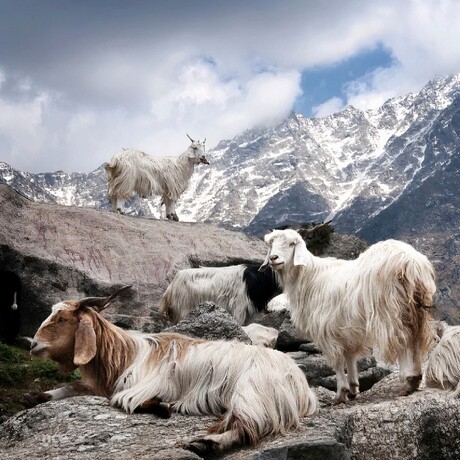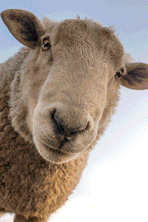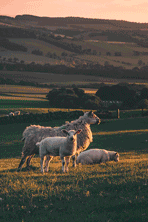Merino wool — advantages, origin, characteristics
Knitted products have long been symbols of comfort, style, and versatility. Merino wool garments are renowned for their exceptional softness, durability, and practicality and are highly regarded in high fashion.
In this article, we will delve into the characteristics of this yarn. What’s more, we'll examine how this exceptional material has become essential in the global knitwear manufacturing industry.
Australian merino wool is the finest and softest in the world. It has significant advantages that no other natural or synthetic fiber can match.
Merino wool is grown year-round by sheep on farms across Australia. While this country also produces other types of wool suitable for bedding and home interiors, merino wool is ideal for creating luxurious clothing and sportswear.
Fashion designers admire this unique fiber for its quality and versatility. No material compares to merino wool; it wears and feels like no other.

Not all wool is alike. Its crucial characteristics include fineness and length. Some types of sheep wool are softer than cashmere, while others are more rigid and suitable for carpets and bedding.
Therefore, merino wool can be categorized into three main types based on fiber diameter (micron). One micron equals one-millionth of a meter, and fiber length is measured in millimeters—these measurements are crucial for determining wool quality and usage.

Fine
Wool from merino sheep with the finest micron measurements is used for high-quality soft fabrics and knitting yarn. Fine merino wool is highly valued by leading fashion houses and used by Yözh.
Medium
Medium-micron wool can be obtained from merino sheep or through crossbreeding. Medium wool creates yarns and various woven fabrics for clothing and furniture.
Broad
Broad wool is obtained from many different sheep breeds. These breeds are often called dual-purpose because they are raised for both meat and wool. Due to its strength and durability, this material is suitable for merino wool products such as carpets.
It's important to note that the average human hair measures 50 to 100 microns in diameter. Merino wool in clothing is typically less than 22 microns, thus this premium fiber is incredibly soft.
100% natural, renewable Australian merino wool is renowned worldwide for its softness, strength, and technical advantages. The versatility of merino wool apparel extends from high fashion to sportswear, accessories, home clothes, and more.
- 100% natural. Wool is sourced from Australia's 68 million sheep, which breathe fresh air, drink clean water, and graze on lush green grass. Read more about our commitment to social responsibility and environmental sustainability.
- Smoothes easily. At a microscopic level, each merino wool fiber acts like a coiled spring, returning to its natural shape after bending. This makes garments easy to smooth.
- Naturally breathable. Merino wool is one of the most breathable fibers. Merino wool garments can absorb and evaporate a huge amount of moisture into the air.

- Comfortable in warm and cold weather. Unlike synthetics, merino wool products consist of fibers that respond to changes in body temperature. It helps keep you warm in cold weather and cool in hot weather.
- Soft on the skin. Is merino wool itchy? No. Merino wool fibers are extremely fine, making them softer and less itchy than traditional, coarser wool fibers. This quality makes merino wool feel soft and luxuriously gentle on your skin.
- Naturally elastic. Natural elasticity allows merino wool clothing to stretch with you while retaining its original shape. So such clothes are ideal for an active pace of life.

- Easy to care for. Most fabrics of wool can be machine washed, offering a simple solution to the common question of how to care for a sweater. Learn more about washing wool sweaters here.
- Stain-resistant. Merino wool fibers have a natural protective layer that resists stains. Since this material does not form static, less dust and lint are attracted to it.
- Eco-friendly. Merino wool is biodegradable, which makes it an eco-friendly alternative to synthetic fibers. In addition, organizations such as Woolmark certify merino wool's sustainable and ethical production. Discover more about the stages of raw material certification.

Merino wool has revolutionized the fashion trend for knitted products, establishing a new standard of luxury, comfort, and eco-friendliness in the lightweight industry. Its unparalleled softness and versatility make it a favorite among consumers. If you're seeking warm, comfortable, and luxurious clothes, consider adding a merino wool sweater to your wardrobe.

Size chart





















